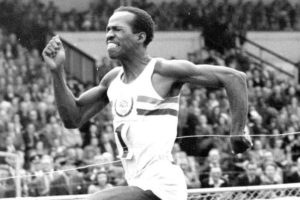
2nd October 2017
Black History Month - Ralph Knibbs
This week marks the start of Black History month and we will be profiling some black employees of British Athletics. Black History Month highlights the history and contributions of black communities and black individuals, past and present and is something we are incredibly proud to support.
 Ralph Knibbs – Head of Human Resources and Welfare
Ralph Knibbs – Head of Human Resources and Welfare
What is your role at British Athletics?
I am responsible for the delivery of all the generic HR processes, equality/ diversity and engagement, the welfare and safeguarding strategy and procedures for the sport of athletics in the UK.
What does Black History Month mean to you?
For me Black History Month is about celebrating all the positive things about being a black person in history and current society. I also believe it is about the recognition that we are truly a multi-cultural society, so each culture should be allowed to celebrate their positive impact on history. We are more powerful together than apart.
What black individual do you most admire in history?
The black individual I most admire in history is Nelson Mandela, as he stood up for what was right against the then South African Apartheid Regime, regardless of what the personal consequences were for him. As a 19-year-old, up and coming rugby union player, I was chosen to play for England against the South African Springboks Rugby Team; I would achieve my lifetime ambition and have been the first black person to represent England in the last century. I declined the offer to win my first cap, as I could not be seen to support the Apartheid Regime. It was a small sacrifice to make when compared to the huge sacrifice being made by Nelson and many others within South Africa at the time.
My black athlete in the history of athletics in Britain is…
Emmanuel McDonald Bailey
Born in Trinidad, Emmanuel McDonald Bailey competed for Great Britain at the London 1948 Olympics, finishing sixth in the 100m before claiming bronze four years later in Helsinki.
Having held 16 British sprint titles between 1946 and 1953, he equalled American Jesse Owens’ 100m world record in 1951 with a time of 10.2 seconds, a mark he would jointly hold for the next five years.
The sprinter, also a member of Britain’s Royal Air Force before returning to Trinidad in 1963, passed away on December 4, 2013, surrounded by family and friends.







